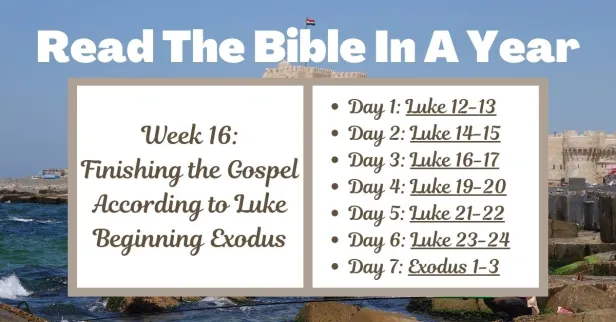Experiencing chronic pain can be an incredibly trying ordeal, one that often prompts individuals to grapple with profound questions about the nature of God’s goodness and mercy. The persistent and seemingly unrelenting nature of chronic pain can lead us to question why a benevolent God allows such suffering. While definitive answers may elude us in this lifetime, my own journey with chronic pain has revealed a surprising source of solace – an encouragement to delve into the pages of the Bible, to engage in heartfelt prayers, and to cultivate a deeper connection with God. Let’s look at 10 encouraging Bible verses that may be helpful for those facing chronic pain.
Comfort in God’s Presence
Psalm 34:18 (ESV): “The Lord is near to the brokenhearted and saves the crushed in spirit.”
In the face of chronic pain, it is not uncommon to feel a sense of abandonment, questioning the presence of God in the midst of our trials. Psalm 34:18, however, extends a powerful reassurance: God is near to those who are suffering and in despair. This verse resonates with the depths of our pain, acknowledging the brokenness and crushing weight of chronic suffering. David, the author of this psalm, faced many life-threatening situations, and yet, even in the midst of his peril, he found the strength to praise God.
Read: Finding Hope in Despair: David’s Psalms & God’s Promises
This verse can become a beacon of hope for those navigating chronic pain, affirming that God’s presence is not contingent on the absence of suffering but is profoundly felt in the very midst of it. In times when the question “Where are you, God?” lingers heavily, Psalm 34:18 offers a poignant response, reminding us that our cries do not fall on deaf ears, and our crushed spirits are held in the tender embrace of a God who draws near to the brokenhearted. It speaks to the transformative power of faith, illustrating that even amid the darkest moments of pain, there exists an opportunity for praise and a deepening connection with the divine.
2 Corinthians 1:3-4 (ESV): “Blessed be the God and Father of our Lord Jesus Christ, the Father of mercies and God of all comfort, who comforts us in all our affliction, so that we may be able to comfort those who are in any affliction, with the comfort with which we ourselves are comforted by God.”
God is a God of comfort, and while this may be obvious, if we did not need comfort, he wouldn’t be known as such. It is an unfortunate truth that 2 Corinthians 1:3-4 assures us that in this lifetime, we are going to be afflicted, but that God will be with us in the midst of it and we will be able to in turn, comfort others. When suffering from chronic pain, the temptation is to whine, “Why me?” but if we look back at 1 Corinthians 10:13 (ESV), we will see that “No temptation has overtaken you that is not common to man. God is faithful, and he will not let you be tempted beyond your ability, but with the temptation, he will also provide the way of escape, that you may be able to endure it.”
The good news is that God is faithful; he will not allow more suffering than we can bear, and he will provide a way out. In my case, writing this blog is helping me focus on God’s word and find joy in the midst of suffering. It serves as a tangible expression of trust in God’s comforting presence during affliction. This act of sharing brings to life the promise embedded in 2 Corinthians 1:3-4, affirming that amidst the trials of chronic pain, God’s comfort is not just a theoretical concept but a lived reality, offering solace and an avenue for endurance.
Finding Rest in God
Matthew 11:28-30 (ESV): “Come to me, all who labor and are heavy laden, and I will give you rest. Take my yoke upon you, and learn from me, for I am gentle and lowly in heart, and you will find rest for your souls. For my yoke is easy, and my burden is light.”
So, how do we find this endurance? Matthew 11:28-30 tells us to turn to God, and he will give us rest. For me, when I focus on the word of God, it provides a distraction that reduces my pain. There are many research studies that confirm that distraction therapy for pain is effective. One such scientific article, titled “Distraction from pain: The role of selective attention and pain catastrophizing,” delves into the psychological aspects of pain management. This research sheds light on how redirecting our attention, can alleviate the intensity of physical suffering.
Moreover, the act of turning to God’s word serves as more than just a distraction. It becomes a profound source of comfort and strength, aligning with the biblical promise of finding rest in him. Matthew 11:28-30 invites us not only to seek solace but also to embrace a yoke that is gentle and a burden that is light. In the realm of chronic pain, where burdens often feel overwhelming, this verse extends an invitation to learn from the very embodiment of compassion and humility—Jesus Christ. In focusing on these scriptures, I have found not only momentary relief but a sustained sense of peace, illustrating the transformative power of spiritual engagement in the journey of enduring chronic pain.
Strength and Help from God
Isaiah 41:10 (ESV): “Fear not, for I am with you; be not dismayed, for I am your God; I will strengthen you, I will help you, I will uphold you with my righteous right hand.”
Even so, confronting the prospect of enduring a lifetime of persistent pain can be profoundly disheartening. Yet, in the midst of this uncertainty, Isaiah 41:10 gives us assurance, promising that God will strengthen and uphold us, and affirms God’s immeasurable power. The enigma of why God permits our suffering may persist, but my personal journey has shown me that in the crucible of chronic pain, I have drawn closer to him. Romans 8:28 (ESV) reinforces this notion, proclaiming that “we know that for those who love God all things work together for good, for those who are called according to his purpose.” This suggests that God may not be the architect of our suffering, but rather, in his sovereignty, he allows it, working even the most challenging circumstances for our ultimate good.
Consider the narrative of Job, a testament to the complex interplay between God’s sovereignty and the human experience of suffering. In the opening chapter, Satan approaches God seeking permission to test Job, and God grants consent. As Job undergoes successive trials, each marked by Satan’s challenges and God’s allowances, a profound transformation occurs. Though tragic events unfold, Job’s unwavering faith solidifies his relationship with God, and he emerges from the ordeal stronger and more resilient. Simultaneously, and perhaps more significantly, Job’s friends, grappling with their own misconceptions about suffering and divine justice, glean invaluable lessons that ultimately prepare them for a deeper encounter with God. Job’s narrative becomes a powerful reminder that even in the face of seemingly insurmountable suffering, God’s purpose prevails, leading to spiritual growth, resilience, and a profound understanding of his sovereignty.
Psalm 73:26 (ESV): “My flesh and my heart may fail, but God is the strength of my heart and my portion forever.”
Psalm 73:26 serves as a poignant reminder that our time on Earth is temporary, and each of us is bound to encounter an earthly death. However, the psalmist assures us that our souls are destined for eternal life. When we anchor our strength in God, a profound assurance arises — the assurance of spending eternity in the presence of God. The tribulations we currently endure, including the relentless sufferings of chronic pain, are a blink of an eye in the grand scheme of eternity.
Drawing an analogy to the profound journey of childbirth, where the pain appears both overwhelming and unending, we find solace in the understanding that, just as a mother beholds her newborn baby, the intensity of that pain becomes a distant, almost imperceptible memory. In the throes of agony, the mother’s focus on the imminent joy of new life transforms the anguish into a stepping stone to a greater, enduring reality.
Similarly, our present struggles, when viewed through the lens of eternity, take on a transformative quality. As we fix our gaze on the promise of spending eternity with God, the challenges we face become a momentary chapter in the unfolding narrative of our everlasting journey. Psalm 73:26 encourages us to embrace the temporary nature of our earthly afflictions, anticipating the day when chronic pain will be but a faint memory in the radiant light of eternity.
Philippians 4:13 (ESV): “I can do all things through him who strengthens me.”
In moments of overwhelming adversity, we might still convince ourselves that the challenges are insurmountable. Yet, Philippians 4:13 dispels such doubts. This declaration from the Apostle Paul encapsulates a profound truth — through Christ, we gain the strength to overcome every challenge, including the relentless struggles of chronic pain. It reminds us that our reliance is not solely on our own capabilities but on the inexhaustible wellspring of strength found in a relationship with Jesus Christ. This verse becomes a rallying cry, emboldening us to face each day’s challenges with unwavering confidence in the sustaining power of Christ. With Jesus Christ on our side, the narrative of chronic pain transforms from one of despair to a testament of triumph, showcasing the resilience born out of a profound connection with the one who strengthens us.
Perspective on Suffering
Romans 8:18 (ESV): “For I consider that the sufferings of this present time are not worth comparing with the glory that is to be revealed to us.”
Building upon the theme of drawing strength from Christ, Romans 8:18 introduces a perspective shift on suffering. Let’s consider the analogy of a butterfly’s transformation. Just as the caterpillar undergoes a challenging and confined existence within its cocoon, it emerges as a beautiful butterfly. The process of metamorphosis involves struggle, darkness, and an apparent limitation of freedom.
Romans 8:18 encourages us to view these present sufferings as a transformative phase, much like the caterpillar’s time in the cocoon. The glory that awaits us, akin to the butterfly’s radiant existence, transcends the difficulties of our current situation. In this analogy, the beauty and freedom of the butterfly represent the incomparable glory promised to those who endure. By aligning our perspective with this biblical truth, we find solace in the belief that, just as the butterfly emerges from its struggles, we too shall transcend our sufferings into a glorious state revealed to us in God’s perfect timing.
2 Corinthians 4:16-18 (ESV): “So we do not lose heart. Though our outer self is wasting away, our inner self is being renewed day by day. For this light momentary affliction is preparing for us an eternal weight of glory beyond all comparison, as we look not to the things that are seen but to the things that are unseen. For the things that are seen are transient, but the things that are unseen are eternal.”
This idea of the butterfly, in combination with 2 Corinthians 4:16-18, should encourage us to not lose heart. While it may appear like our bodies are wasting away with chronic pain, we can use the experience to grow closer to God, turn our focus to the things unseen, and find a purpose that transcends our circumstances.
Read: Musings about Finding Purpose, Meaning, and Joy in Life
In the moments when the pain becomes too much, and we retreat into the cocoon of our bed, we can choose to read our Bible or another edifying book, or perhaps listen to a helpful podcast. The trick is to avoid wallowing in despair. While we will definitely have moments where we will succumb to temptation, the more we strengthen our relationship with Jesus, the less frequently this should happen. The goal is to forge a path towards spiritual renewal and resilience.
Appreciating God’s Creation
Psalm 139:13-14 (ESV): “For you formed my inward parts; you knitted me together in my mother’s womb. I praise you, for I am fearfully and wonderfully made. Wonderful are your works; my soul knows it very well.”
In the journey of enduring chronic pain, it becomes crucial to appreciate God’s creation, including the intricate design of our own bodies. Psalm 139:13-14 beautifully captures this sentiment, acknowledging that God, in his wisdom, meticulously formed our inward parts, knitting us together in the sanctuary of our mother’s womb. Despite the challenges posed by chronic illnesses or genetic defects, this passage serves as a powerful reminder that we are still fearfully and wonderfully made.
While chronic pain may test the limits of our physical endurance, the truth embedded in these verses transcends the immediate struggles. Jesus, in his earthly ministry, demonstrated boundless love and compassion toward those facing physical afflictions. He touched and healed lepers, restored sight to the blind, and mended the broken. By meditating on Psalm 139:13-14, we can align ourselves with the profound reality that our worth is not determined by our circumstances or genetic makeup alone. Rather, it is rooted in the intentional craftsmanship of a loving creator.
In moments of despair or frustration with our bodies, this scripture invites us to praise God, acknowledging the wonderful works of his hands. Embracing the truth that our souls inherently recognize, we find solace in the divine assurance that, despite the challenges of chronic pain, the essence of our soul, and even our bodies, remains fearfully and wonderfully made. This awareness becomes a catalyst for gratitude, fostering resilience as we navigate the complexities of our physical existence.
Read: Discovering Hope and Gratitude in the Psalms: A Transformative Journey
Seeking Healing through Prayer
James 5:14-15 (ESV): “Is anyone among you sick? Let him call for the elders of the church, and let them pray over him, anointing him with oil in the name of the Lord. And the prayer of faith will save the one who is sick, and the Lord will raise him up.”
While we can be assured that God will eventually heal our bodies, this may or may not come until after our resurrection. In the meantime, James 5:14-15 provides a practical guide for seeking solace and healing in the present. The passage encourages individuals grappling with illness to reach out to other believers and request prayer and anointing of oil, which is an expression of faith in the healing power of the Lord.
It is lovely when God gives a “Yes” answer to these prayers and a person is healed, but unfortunately, this is often not the case. In my own journey of chronic pain, these verses are a reminder that while God’s timeline for physical healing may differ from mine, the act of seeking prayer is an embodiment of trust in his divine plan. The communal aspect underscores the interconnectedness of believers, emphasizing the shared responsibility to uplift and support one another in times of affliction.
In contemplating God’s response of “Not yet” to my own personal healing, questions arise about the condition of my soul in the face of potential physical restoration. Would a swift healing alter the frequency of seeking solace in scripture? Would it shift priorities from spiritual nourishment to mere enjoyment of life’s pleasures? James 5:14-15 challenges us to ponder these questions, recognizing that the healing of the soul is intricately intertwined with the physical healing sought through prayer.
As I continue to navigate the journey of chronic pain, I wonder how often I would really pray if I were not in pain. Would I become absorbed in my own pursuits and put God on the back burner? This prompts reflection on the intertwined nature of physical and spiritual healing and how one can make a commitment to follow Jesus even amidst the uncertainty of pain.
In the end, I choose to follow Jesus as I seek joy and contentment in the midst of suffering.
Reflection Questions
As you consider these verses and the text of this blog post, consider the following questions:
- How does the author’s journey with chronic pain resonate with your own challenges?
- In what ways has faith played a role in how you navigate personal struggles?
- When questioning God’s presence in difficult times, how have you found reassurance?
- How can the awareness of God’s nearness impact your perspective during moments of suffering?
- How do you experience God as a source of comfort during times of affliction?
- In what practical ways can you integrate the concept of God’s comfort into your daily life?
- How do spiritual activities influence your emotional and physical well-being?
- In what ways can you actively embrace a “gentle yoke” and find rest in God?
- How does the assurance of God’s strength shape your view of persistent challenges?
- How might a connection with Jesus transform the narrative of chronic pain from despair to triumph?
Reflective Prayer
Use one or more of these Bible verses or reflection questions to pray using the ACTS method: Adoration, Confession, Thankfulness, Supplication
- Adoration: Praise God. Do these verses bring any specific characteristics of God to mind?
- Confession: Tell God that you are sorry for specific sins. Do these verses bring any specific sins to mind?
- Thankfulness: Show gratitude towards God. Does anything from these verses inspire gratitude?
- Supplication: Make requests for yourself and for others. Does anything from these verses inspire a prayer?
If helpful, you can use a prayer journal template.
Respond
In the challenging journey of chronic pain or other challenges, these verses offer us a guiding light, reminding us of God’s nearness in our struggles and the comforting assurance that he is with us in our afflictions. Let’s find solace the promise of strength, rest, and ultimate healing through faith. As we reflect on these scriptures, consider sharing your insights, struggles, and moments of triumph in the comments below.
Subscribe
If you enjoyed this post and wish to receive more Christian content, feel free to subscribe to my newsletters!
Related Resources
Visit the Joyful Moments in Christ homepage for all posts, or scroll through other blog posts related to pain, suffering, hope, joy, and contentment:
English Standard Version (ESV): Scripture quotations marked (ESV) are taken from the ESV® Bible (The Holy Bible, English Standard Version®), © 2001 by Crossway, a publishing ministry of Good News Publishers. Used by permission. All rights reserved. The ESV text may not be quoted in any publication made available to the public by a Creative Commons license. The ESV may not be translated in whole or in part into any other language.








































